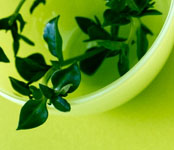|
Causes of Depression
In the past, doctors believed that depression was the result of thoughts or emotions that were troubling for a person. More recently, experts realize that there can be several factors working together that will lead a person to become depressed. The three most important of these are biological, genetic, and environmental factors.
Biological causes are due to changes in the chemistry of the brain, such as fluctuations in the levels of important hormones. Genetic causes are the result of what you inherit from your parents. If one or both of your parents have a vulnerability to depression, then it can be transmitted to you. Environmental factors (also called emotional factors) result from stressful emotional situations, such as a lack of loving parents or the death of a parent during childhood. To make it even more complicated, depression can also occur as a result of a combination of the three factors just mentioned. If you inherited a vulnerability to depression from one of your parents, your brain may react to a stressful event in a way that causes you to get depressed.
Depression Symptoms
Depression varies from person to person, but there are some common signs and symptoms.
- Feelings of helplessness and hopelessness.
- Loss of interest in daily activities.
- Appetite or weight changes.
- Sleep changes.
- Psychomotor agitation or retardation.
- Loss of energy.
- Self-loathing.
- Concentration problems.
Why does acupuncture help?
Modern medicine typically treats depression with a form of psychotherapy and/or anti-depressant drugs regardless of the specific symptoms presented by the depressed patient. Traditional Chinese Medicine believes that the human body has 12 main points of intersection through which the natural energy of the body flows. This energy is referred as qi (or chi). When energy flows freely throughout the body you experience health. Illness, or depression, would indicate a blocked or insufficient flow of energy. The purpose of acupuncture treatment for depression is to help restore the proper flow of qi so the body can function properly. Acupuncture treats the root of disease not just symptoms. An interpretation of all this, in the language of Western science, is that it helps to stimulate the central nervous system to releases endorphins, the body's pain-relieving chemicals. Acupuncture's ability to release endorphins is one of the main ways it can help relieve depression. These chemical messengers will stimulate the body's natural healing mechanisms to help restore normal mood.
Assisting Treatments
Acupressure (Chinese Medical Massage)
Research indicates that massage helps reduce stress, anxiety and depression. Massage causes the body to release many therapeutic mood and health enhancing chemicals. It increases dopamine and serotonin and reduces the stress hormones cortisol and adrenaline. It increases the relaxation alpha brain waves and also increases pain relieving levels of endorphins. Massage also lowers noradrenaline and lowers the stress hormone ACTH (Adrenocorticotrophic hormone).
Herbs
Many of us trust natural herbs in place of common medicine simply because natural plants rarely have side effects in the long run, which one almost always is faced with when administering powerful traditional drugs. Natural herbs to cure depression almost always will obtain the results desired but won’t show the results immediately. Herbs are usually more effective when combined with acupuncture to treat depression. They improve your overall health and immune system rather than concentrate on depression alone. It is not recommended to use any herbal medicine just because you saw an ad for it, or your friends say it helped them, because herbal medicine should only be used when needed. It is always advisable to visit qualified Chinese medicine practitioner on herbal treatment. Remember your depression won’t go away, if the herbs are not taken properly. You will only waste your money and time.
Cupping
Cupping therapy affects the body’s tissue up to four inches deep. This causes tissue to release toxins, clears blockages, activates the lymphatic system and helps to clear the veins and arteries. Cupping is thought to be the best form of deep tissue massage available and is safe and reliable for most people.
Research Evidence
Psychologist John Allen, from the University of Arizona in Tucson, and Acupuncturist Rosa Schnyer, conducted the very first pilot controlled study on treating depression symptoms with acupuncture. In a double blind randomized study, 34 depressed female patients who met the DSM-IV diagnostic criteria were assigned to one of three treatment groups for eight weeks.
The first group received acupuncture treatment specifically tailored to their depression symptoms. The second group received a general acupuncture treatment not specific to depression, and the third group was placed on a waiting list for acupuncture treatment, but received no treatment. The study found that those in the tailored acupuncture treatment experienced a significant reduction in symptoms, compared to those in the non-specific treatment. Moreover, over 50% of the participants no longer met the DSM-IV diagnostic criteria for depression after the study.
The study findings suggest that using acupuncture could be as effective as other types of treatments for relieving depression symptoms typically used in Western medicine, such as psychotherapy and drugs.
- The United Nations World Health Organization has approved acupuncture as a treatment for depression. “Acupuncture is comparable with amitriptyline in the treatment of depression but has fewer side-effects.”---World Health Organization
- “Acupuncture is more effective than drugs in the treatment of depression. 96.7% of patients improved within two weeks.”---Beijing University of Traditional Chinese Medicine
|

